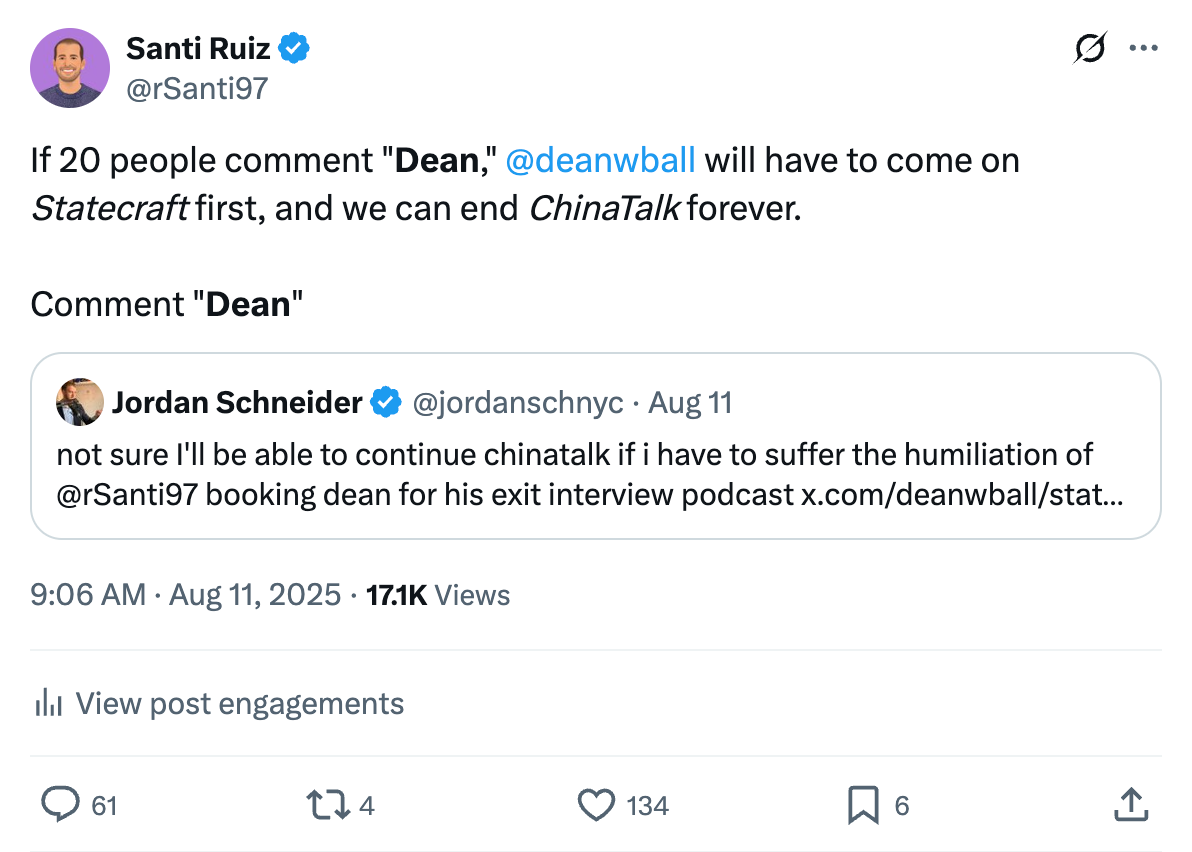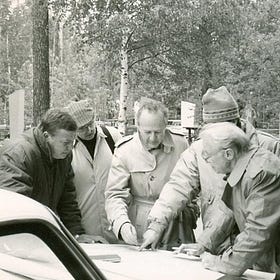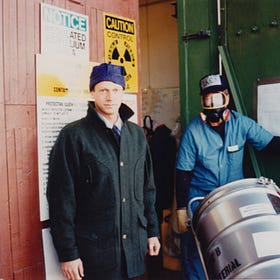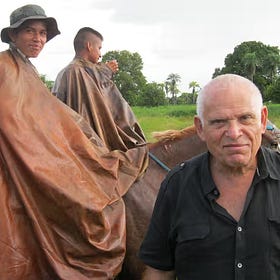Order of Operations in a Regime Change
A review of Collapse: The Fall of the Soviet Union, by Vladislav Zubok
Today’s episode is a quick book review, updated and expanded from this post on August 10th. We have some excellent interviews coming up later this month and next month, along with some big news.
A glimpse of our upcomings:
Anyway, on to Collapse.
For a printable transcript of this piece, click here:
Zubok dedicates Collapse “to all reformers,” and it’s worth reading in that vein, as a cautionary tale about the difficulty of steering reforms once you set them into motion.
Zubok’s big thesis is that the collapse of the USSR wasn’t inevitable — had Gorbachev made better decisions, he could have liberalized while keeping the Union together. This was my first deep dive into the end of the Soviet Union, so I can’t fully judge his specific argument (although over the past couple of years, I’ve enjoyed reading about Russia in general. In particular, I liked Imperium by Ryszard Kapuscinski, Statecraft guest John Lechner’s book on the Wagner Group, Statecraft guest Edward Luttwak’s book on Soviet grand strategy, Stalin’s War by Sean McMeekin, and the 1917 chapter in Crane Brinton’s Anatomy of Revolution. George Saunders’ A Swim in a Pond in the Rain is literary criticism rather than history, but it was also really excellent. I’m hoping to read Pipes’ The Russian Revolution later this year, and would run a book club if there’s sufficient interest.)
But on the possibility of keeping the Union together, Zubok makes a compelling case. In particular, he thinks that the staging of liberalizing reforms matters, and that you can blow an otherwise workable scheme by not sequencing properly. In particular, Gorbachev loosens restrictions on how state-run enterprises can invest their profits, as well as on capital flows to the West. The result is the selling off of productive assets (looting) before there’s a free internal market or a stable currency to support productive liberalization.
I thought there was an interesting parallel to DOGE’s sequencing of reforms. As I’ve argued elsewhere in this newsletter, many of the aggressive personnel moves made by DOGE, cutting headcount in various agencies, only make sense as efficiency measures once you’ve already reduced the procedural and regulatory burden on those agencies. Otherwise, you’re asking the same agency to continue to perform the same functions with the same tools, only with less capacity. Multiple DOGE team members are now working on versions of that deregulatory project within the federal government, and I’m hopeful there will be some value created there. But if the sequencing had been reversed, it would have made a lot more sense, and likely built more political capital.
Other notes from Collapse:
Multiple plausible economic liberalization plans were put forward (the Petrakov program, Yavlinsky’s “400 Days of Confidence”), but no politician had the stomach for them.
Additionally, no one in Gorbachev’s generation had any stomach for the use of force — not Gorbachev, not Yeltsin, not the neo-Stalinist coup leaders in the fall of 1991 — even when force would have been in their political interests. If you read Svetlana Alexievich, you know how many true believers in communism remained even in the 1980s. But apparently, that true belief isn’t totalizing for the coup plotters: after the coup fails, only a couple kill themselves.
Gorbachev was a fascinating character: far more beloved in the West than in his home country, a brilliant procedural politician but without the stamina or dedication to see reforms through, a Leninist who wants to bring down state communism. Zubok paints him ultimately as a fool, unable to come to grips with the process he sets in motion.
The book says the tax on alcohol constituted 1/3rd of Soviet GDP. That seemed impossible, and of course it is. There are sources that argue that 1/3rd of Soviet government revenue came from alcohol, but those sources are contested too: the true number seems smaller by at least half. It reminds me of the recent debate over whether firewood constituted 30% of American GDP in 1830. A lesson from reading history: if a claim seems impossible, it often is. Go check.
Regardless, the amount of drinking in this book is remarkable. Yeltsin is incoherently drunk by midday, regularly.
The US had excellent insight into what’s going on in the USSR, comparatively — HW Bush talks to Gorbachev and Yeltsin regularly, Baker talks to his counterparts, etc. Lots of Western news media in Moscow by ‘91. Yet the collapse is still a surprise to the West right up until it actually happens, and well after it’s understood to be a fait accompli by everyone except Gorbachev. It’s just hard to make predictions (see the latest Statecraft on this).
A great episode with canny former President Nixon: he flies to Moscow to meet with both Gorbachev and Yeltsin, but they say they’re busy. So he has a loud conversation in his hotel lobby about a future meeting with Yeltsin. The KGB overhears, reports it back to Gorbachev, who suddenly finds time that very day to meet with Nixon. Nixon’s people then call Yeltsin’s people back and let them know that he'll be meeting with Gorbachev, and Yeltsin’s people rush to schedule their own meeting.
Even the democratic Russian reformers are desperate to keep Crimea and Ukraine in the national divorce (Solzhenitsyn is the most well-known example of this).
All in all, an excellent read, albeit a tiny bit stiff at times. Five stars. Zubok has a new book out on the history of the Cold War (and an episode of Odd Lots that I will be checking out next.
For more Statecraft on Russia, see some of my favorite interviews we’ve published:
How to Catch a Lab Leak
In April and May 1979, between 66 and 300 people died from anthrax in the Russian city of Sverdlovsk, now called Yekaterinburg. The Soviet authorities seized doctors’ records and quickly rolled out an explanation: the deaths were an accident caused by contaminated meat.
How To Secure Weapons-Grade Uranium
When the Soviet Union fell in 1991, hundreds of tons of nuclear materials were suddenly unsecured. The new, fragile Russian government had no ability or desire to claim facilities in formerly Soviet states like Georgia and Kazakhstan, and it could no longer pay
How to Run a Private Military Company
Today’s guest is John Lechner, a writer and researcher. He's here today to talk about his new book about the Wagner Group, a Russian state-funded private military group, or PMC. The book is called Death Is Our Business: Russian Mercenaries and the New Era of Private Warfare









If you want to really pull the thread on the Order of Operations thesis I recommend Cohen’s “Voices of Glasnot” which is a series of interviews with Gorbachev’s reformers at the height of their powers, pre-Collapse. Fascinating primary source material.
You make a good point about DOGE and the order of operations.
Did Elon spend five seconds thinking to himself,
“I need 100 people to meet all the requirements for a successful SpaceX launch. Wouldn’t it be more efficient though if we did that with 8 people?”
“Damn now that my staff is at 8 people, why are my rockets exploding and not launching on time”